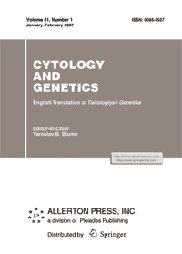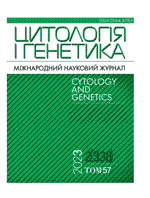SUMMARY. Mycoplasma pneumoniae is the etiological agent of various forms of human respiratory pathology: sinusitis, pharyngitis, laryngitis, bronchitis, pneumonia, bronchial asthma. One of the main pathogenic factors of Mycoplasma pneumoniae, hydrogen peroxide, is released in the enzymatic reaction catalyzed by glycerol-3-phosphate (G3P) oxidase. In the G3P oxidase gene of Mycoplasma pneumoniae clinical isolates, obtained from the biological material of patients with bronchitis and pneumonia of mycoplasma etiology, A152T (His51Leu) and G163C (Asp55His) substitutions have been identified, associated with the variations in enzyme activity. Mycoplasma pneumoniae isolates, carrying the A152T substitution (His51Leu), produced hydrogen peroxide significantly lower (5 mg/l) in comparison with the reference strain (10 mg/l) and had reduced cytotoxicity to respiratory epithelial cells. While Mycoplasma pneumoniae isolates, carrying substitution G163C (Asp55His), were characterized by enhanced pathogenic properties, such as increased production of hydrogen peroxide (25 mg/l) and more pronounced cytotoxicity to respiratory epithelial cells.
Keywords: Mycoplasma pneumoniae, glycerol-3-phosphate oxidase, nucleotide substitutions, hydrogen peroxide, cytotoxicity

Full text and supplemented materials
References
1. Saraya, T., Kurai, D., Nakagaki, K., Sasaki, Y., Niwa, S., Tsukagoshi, H., Nunokawa, H., Ohkuma, K., Tsujimoto, N., Hirao, S., Wada, H., Ishii, H., Nakata, K., Kimura, H., Kozawa, K., Takizawa, H., and Goto, H., Novel aspects on the pathogenesis of Mycoplasma pneumoniae and therapeutic implications, Front Microbiol., 2014, vol. 5, article 410.
2. Elkhal, C.K., Kean, K.M., Parsonage, D., Maenpuen, S., Chaiyen, P., Claiborne, A., and Karpus, P.A., Structure and proposed mechanism of L-glycerophosphate oxidase from Mycoplasma pneumoniae,FEBS J., 2015, vol. 282, pp. 3030–42.
3. Balish, M.F. and Distelhorst, S.L., Potential molecular targets for narrow-spectrum agents to combat Mycoplasma pneumoniae infection and disease, Front Microbiol., 2016, vol. 7, article 205.
4. Großhennig, S., Schmidl, S.R., Schmeisky, G., Busse, J., and Stülke, J., Implication of glycerol and phospholipid transporters in Mycoplasma pneumonia growth and virulence, Infect. Immun., 2013, vol. 81, no. 3, pp. 896–904.
5. Wang, M., Wang, Y., Yan, Y., Zhu, C., Huang, L., Shao, X., Xu, J., Zhu, H., Sun, X., Ji, W., and Chen, Z., Clinical and laboratory profiles of refractory Mycoplasma pneumoniae pneumonia in children, Int. J. Infect. Dis., 2014, vol. 29, pp. 18–23.
6. Willner, D., Daly, J., Whiley, D., Grimwood, K., Wainwright, C., and Hugenholtz, Ph., Comparison of DNA extraction methods for microbial community profiling with an application to pediatric bronchoalveolar lavage samples, PLoS One, 2012, vol. 7, no. 4. https://doi.org/10.1371/journal.pone.003460.5
7. Mitroshina, E.V., Mischenko, T.A., and Vedunova, M.V., Detection of Viability of Cell Cultures, Nizhni Novgorod: Lobachevsky State University of Nizhni Novgorod, 2015.
8. Schmidl, S.R., Otto, A., Lluch-Senar, M., Pinol, J., Busse, J., Becher, D., and Stülke, J., A trigger enzyme in Mycoplasma pneumoniae: impact of the glycerophosphodiesterase GlpQ on virulence and gene expression, PLoS Pathog., 2011, vol. 9, no. 7. https://doi.org/10.1371/journal.ppat.1002263
9. Li, S., Li, X., Wang, Y., Yang, J., Chen, Z., and Shan, S., Global secretome characterization of A549 human alveolar epithelial carcinoma cells during Mycoplasma pneumoniae infection, BMC Microbiol., 2014, vol. 14, article 27.
